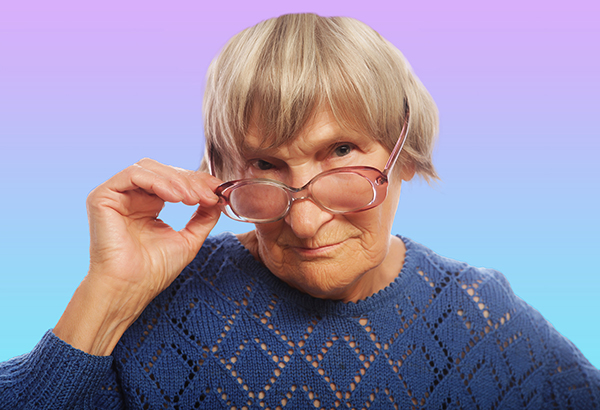Principles are Always Nuanced!

It is a sad fact that in our current western society there are people who use great or profound truths to silence others, or as many US folks say, to Cancel others, to shut down or dismiss their voices.
This is always done by the heartless ones who are traumatised and lacking in the ability to keep their own emotions and reactions in-check. Rather than simply sharing their own point of view with clear cool reason and detachment, they try to elevate themselves by putting others down, which is no true elevation at all – it is just ugly unrefined behaviour that makes for an ugly unrefined world!
Instead of understanding that all principles are nuanced, they use a boring literal interpretation like a blunt instrument to bludgeon others. This way of thinking, if we could even call it “thinking,” is lacking in insight and finesse, and reeks of the same fundamentalism that religious zealots are known for.
These types of people have a lot to answer for. Instead of adding beauty and richness to our world of thought, they use their rigidity of mind to create polarisation and perpetuate aggression. And I realise the apparent polarisation paradox in even talking about “them.”
Let’s undo some of their coldness of mind and unloving behaviour by exploring the nuances within a few principles or truths that they frequently use as blunt weapons to judge, attack, and silence others.
Energy Follows Thought
The statement, “Energy follows thought,” is not a carte blanch rule devoid of qualifications.
Yes, energy follows thought, but the nature, quality, and strength of the thought will determine the energy it carries and the effect it will have. And of course, as we are creative beings, these thoughts, or the story we tell, will become the narrative that defines our reality.
That said, we cannot address or heal something we do not see and acknowledge. Therefore, we must give sickness, darkness, or evil a little energy – enough to bring it into the full light of consciousness so it can be addressed and healed. This is an essential nuance that is often overlooked.
Truly, not all thoughts are equal, hence, some thoughts make matters worse, while others are profoundly transformative!
Energy Follows Focus
What about “Energy follows focus”? Again, this is true, with specifications.
The nature, strength, and duration of the focus, along with your degree of detachment, will determine the impact upon that which you are focusing and what happens within you.
We can, with a measure of self-control, observe anything in the world without adding energy to it. Detached observation is the necessary basis for all discernment. We cannot choose with clear wisdom without clear observation, and this requires clear focus.
To see is not to energise. Seeing is not the same as Energising. To truly energise something requires directed focused attention and intention. Energisation depends largely on the nature of your mindset, on what you tell yourself about what you are seeing, the emotions such thoughts trigger, and then, any actions or inactions you follow with. Though energisation frequently happens unconsciously, due to excessive or continual semi-conscious focus or rumination on the point of focus – seeing then shifts to fixation.
What We See in Others

What about the expression, “We see in others what we most need to see within ourselves”? Again, this is not a harsh, sharp, black and white reflection, there are many nuances to consider.
If we see something in another or others and we have any emotions or reactions due to this, we can be certain that the seeing is indeed showing us things we need to address within ourselves. But even here, there are nuanced details to factor in.
We may be seeing a direct reflection of equal measure and likeness; it could be the same quality within us but appearing in a different measure or form; or it could be the reflection of like-kinds and not a direct reflection at all. This type of reflection appears with victim consciousness seeing and judging perpetrator consciousness or vice versa. They are two ends of a dipole, like the north and south poles of a magnet, they appear quite different in manifestation but are being driven by the same core problem – an incorrect relationship to power – one giving their power away, and the other taking the power of others.
And beyond seeing in others, things we need to address within ourselves, when the Heart Centre is properly awakened and we have cultivated its detachment and dispassion, this awakens within the Great Eye the ability to see things within the whole that may not exist within our separated self at all!
And of course, we cannot forget the fact that we can always see within others that which we had within ourselves but have already mastered – this is true because the greater or higher always contains the lesser or lower, even if such patterns have been transmuted and have subsequently dropped beneath the threshold of our personal consciousness.
Treat Others How You Wish to Be Treated
Some of us grew up being taught we should treat others how we wish to be treated, and while there is value in this as a general principle, you cannot simply act on this across the board as we are all different.
Some of us prefer direct clear observations from others, shared dispassionately, while others need a little soft coddling when being given feedback.
Yes, sadly, this expression is usually interpreted sentimentally. The common interpretation denies our uniqueness, especially that we are all at different levels of development or evolution from animal-man to enlightened being.
However, differences aside, there are general principles we can use in our behaviour towards others, things that we might all value and appreciate, like kindness and compassion. But even here, there are nuances that can make the expression seem untrue, and there is also a deeper meaning or greater principle underlying this somewhat trite sounding expression or saying.
This saying about how we treat others is a human reflection pointing to the Law of Karma. It is evidence that deep within, we know that what we sow, we reap, or what we give out, we get back. And this being so, we know that for our best chance to be treated with kindness and compassion, we must treat others in this same manner.
However, one nuance that is often overlooked with the personality reflection of this great law, is the great law itself. We can spend years, or even a lifetime, being kind to others, and yet, experience much cruelty at the hands of these same people or others. And it may seem to the more cynical amongst us that “treating others how we want to be treated” doesn’t work. This shortsightedness is due to forgetting that the Law of Karma always works hand-in-hand with the Law of Rebirth or Reincarnation.
If in any given life, we have the great fortune of finding ourselves genuinely motivated by Lovingkindness, it is because we spent much time, and usually lifetimes, cultivating this, and like all virtues, learning its value through doing the opposite and suffering the consequences. Every truly kind person has been deeply unkind or cruel in earlier lives, and this means there is karma of suffering unkindness and cruelty to repay. But this is even more reason to continue to practice kindness, even if, especially if, we find that others do not return our kindness! We must continue to deposit kindness, compassion, and love into our karma banks. This is the only way to be treated how we wish to be treated, even if it doesn’t appear until a future life.
We must give out precisely what we wish to receive, there is no other way. Or put differently, we will receive precisely what we give out – the love, compassion, and kindness, but also the resultant harm we caused while learning the value of such beautiful virtuous qualities.
Conclusion
It is rare that we ever see the fullness of any Divine Law or Principle, how it works or manifests at all levels and under all conditions. I certainly make no claims to fully know any such laws.
It is my simple hope that in revealing some of the many nuances, in even these few principles, you will see that our understandings are never complete, we always have much more we can learn, and therefore, we should avoid prideful overestimation of ourselves and the foolish behaviour of using principles as weapons.
Instead, we should all cultivate humility and remember there is always more we can learn. We could as a reasonable starting point, especially strive for wisdom, kindness, and nonviolence in all our interactions with others.
To love and peace in all ways.
Azure Seer
